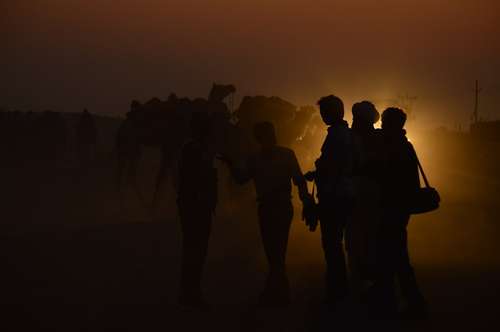The recent escalation in military actions by Israel in the conflict-ridden region of Gaza is stirring intense debate around the globe. Lives are being upended and the world watches as events continue to unfold in a way that seems impossible to predict. It’s a charged moment that raises questions about international diplomacy, humanitarian concerns, and the overall trajectory of the Middle East conflict.
Many find it hard to grasp how rapidly the situation has spiraled, and one can’t help but wonder: What are the implications of this war expansion on global politics and regional stability? As discussions intensify, the reaction from the international community has been nothing short of diverse and often polarizing.
Israel's Military Strategy and War Expansion
The unfolding events reveal a series of calculated military strategies that have led to what many call a significant war expansion. In this section, we explore the details of these measures and the thought process behind them.
The strategy appears to be a more aggressive form of military conflict aimed at dismantling Hamas’ capabilities. Soldiers on the ground and air strikes have become part of a narrative that is both complex and intensely controversial. Military analysts have noted that the use of advanced technology and innovative tactics in this operation is only one part of a broader geopolitical game.
Observing these tactics, you might think of it like a high-stakes chess match on a global scale. Each move by Israel seems to be calculated not only to counter immediate threats but also to send a message to both allies and adversaries alike. There is a clear intention to alter the power dynamics within the region, a maneuver with dangerous and far-reaching consequences.
This military strategy has, however, drawn heavy criticism from various quarters, with some calling it an unnecessary escalation that risks further destabilizing the Middle East. In the fast-evolving tapestry of global politics, such tactics can be seen as a double-edged sword.
Analysts claim that every offensive move sparks a wave of reactions; it’s as if the whole world holds its breath waiting for the next play in this dangerous game. The intensity of the military conflict, coupled with its potential for widespread impact, is a reminder of how intertwined warfare and diplomacy have become.
International Reactions and Global Response
The international community has responded to Israel’s recent actions with a mix of concern and criticism. This section delves into how different countries and global institutions have reacted and what this means for international relations and diplomacy.
In several cities around the world, voices from political leaders to everyday citizens echo the sentiment that the conflict’s escalation may fuel further instability. Notably, Germany has expressed its apprehension, suggesting that unchecked military strategies could have negative repercussions on international relations. Meanwhile, the United States has maintained a more measured stance, urging diplomacy and caution in the face of conflict.
Many see these reactions as emblematic of the broader divide in global politics. The polarization is striking: while some factions within the international community see Israel’s actions through the lens of self-defense and necessary military strategy, others are highly critical, citing severe humanitarian consequences and the risk of igniting a broader war.
You might ask, what prompts such varied perspectives? It often comes down to geopolitical interests and historical alliances. The global response is not simply about condemning or supporting military tactics; it’s about a broader debate on how the international community should respond to crises in our increasingly interconnected world.
International relations experts warn that the continued escalation could have long-lasting impacts on foreign policy amid rising security concerns. Some diplomats express their views candidly, emphasizing the need for renewed peace talks and robust diplomatic solutions that prioritize human rights while maintaining regional stability.
Humanitarian Impact and the Geopolitical Impact on the Middle East
The escalation of conflict also brings with it a severe humanitarian crisis that cannot be overlooked. This section focuses on the dire circumstances faced by civilians in Gaza and the wider implications for regional stability and global security.
One of the most heart-wrenching aspects of the conflict is the plight of innocent civilians. Families in Gaza are caught in the crossfire, forced to flee from their homes in search of refuge. Reports of shortages in essentials such as food, medicine, and clean water are becoming increasingly common, painting a grim picture of the ongoing humanitarian emergency.
It’s much like watching a community slowly dissolve under pressure, where every day brings new challenges and fears for survival. The stark reality on the ground is a reminder that behind every military maneuver there are real people whose lives are in constant jeopardy. The war expansion has created a vacuum of safety that has left many vulnerable to the whims of fate.
From a geopolitical perspective, the humanitarian fallout plays a significant role in shaping international opinions on the conflict. When civilian casualties mount and the basic needs of the population are unmet, the narrative quickly shifts from the battlefield to human suffering. The global community is undoubtedly watching, and rightly so, as numbers rise and stories of loss spread through international media.
In conversations with human rights advocates, one common analogy is often made: a storm that not only uproots trees but also demolishes the very foundation of a community. This connection between military actions and humanitarian catastrophes puts added pressure on world leaders to engage in genuine diplomatic efforts aimed at mediation rather than escalation.
The situation reminds us that in any conflict, the human cost is usually the heaviest. The complex interplay between military strategy and humanitarian concerns is a quintessential challenge of modern warfare, where strategic gains often come at the expense of moral imperatives.
Diplomacy, Peace Talks, and the Future of Regional Stability
Amid the unfolding events, diplomacy and peace talks remain critical to mitigating the escalating tensions. This section reviews the efforts and obstacles that lie ahead in diffusing the conflict’s intensity and achieving fragile peace.
Despite the ceaseless military advances, there is a quiet hope that robust dialogue might still redirect the course of the conflict. It is often said that communication is the first step to resolving deep-seated issues. Indeed, seasoned diplomats emphasize the importance of reinitiating discussions that prioritize dialogue over devastation.
Political leaders from different countries, including influential figures from the United States and several European nations, echo calls for sustained peace talks. They stress that all efforts should be directed toward preventing further violence and ensuring that future strategies take into account humanitarian concerns and long-term regional stability.
This approach, however, is not without its challenges. With the entrenched positions of multiple stakeholders, each with their own geopolitical and security concerns, reaching a consensus is no small feat. The prospect of peace talks is often met with mixed reactions: some see it as a mere formality, while others believe it is the only way forward.
The dialogue around peace isn’t just theoretical; it carries real weight on the international stage. For example, by re-engaging in meaningful diplomacy, there is hope that the international community might help broker incremental measures that ease tensions and build trust. Some experts argue that the current wave of escalation underscores the urgent need for new frameworks in international relations that can adapt quickly to modern warfare dynamics.
In this unpredictable landscape, one thing remains clear: the path to lasting peace is paved with difficult decisions and the courage to negotiate without preconditions. It’s a scenario where every concession can count toward a future free from the cycle of violence.
In closing, the unfolding situation in the Middle East, marked particularly by Israel’s war expansion, is a reminder that political ambitions and military strategies often have far-reaching, unintended consequences. From the rapid rise in hostilities to the severe humanitarian impacts on civilians, every facet of this conflict tells a story of hardship and resilience amid chaos.
International reactions have been as diverse as the challenges posed by the conflict, reflecting the complex nature of global politics and the urgent need for thoughtful diplomacy. As nations deliberate on the balance between security and humanitarian responsibility, one can only hope that the understanding cultivated in international forums will lead to meaningful peace talks. After all, history shows that even in our darkest moments, dialogue and cooperation have the power to turn the tide.




